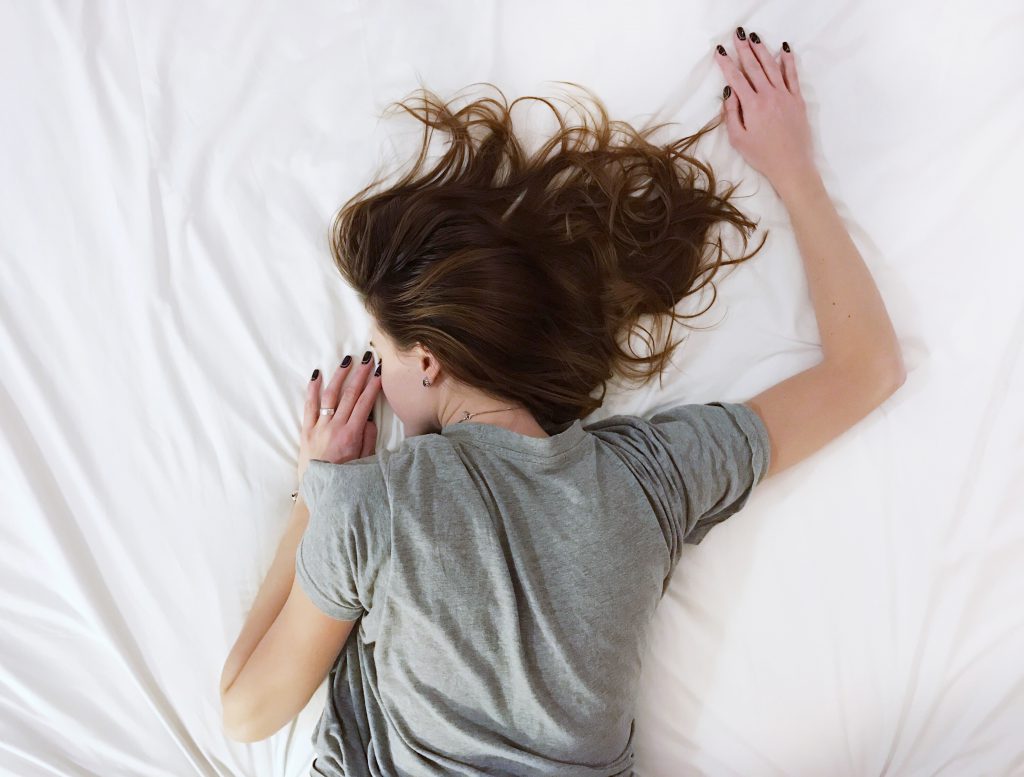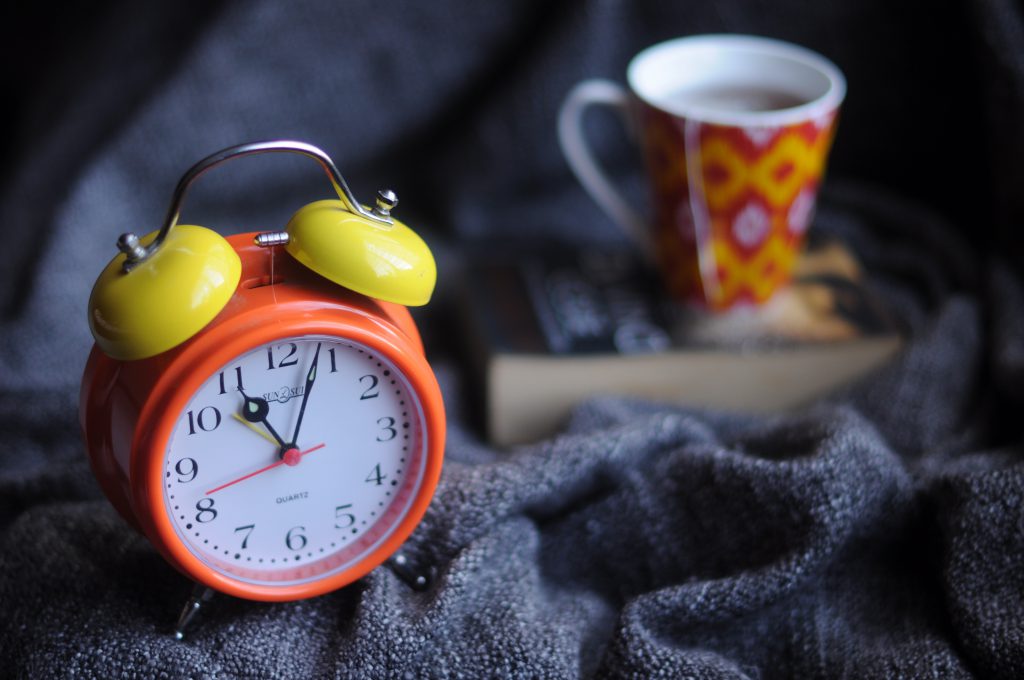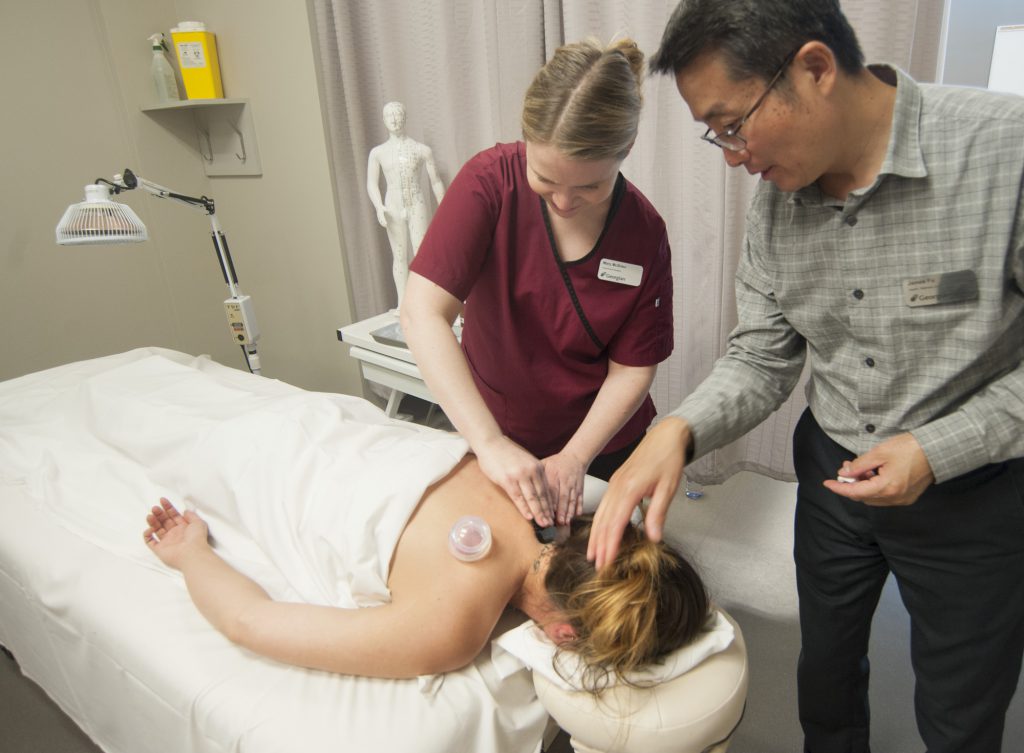How to get a better night’s sleep as a student
Nov. 3, 2020
Has the recent time change (Daylight Saving Time ended), mid-terms or the pressures of the pandemic interrupted your sleep?
Even though college is often associated with pulling ‘all-nighters’, a lack of sleep can actually impair your ability to be successful. In fact, the National Sleep Foundation suggests that those between the ages of 18 and 64 should get between 7 to 9 hours of sleep per night.
With this in mind, we spoke to Christine Lang, a registered acupuncturist, traditional Chinese medicine practitioner and Georgian College faculty member, about her tips to help students get a better night’s sleep.
What are the benefits of getting a good night’s sleep?
- Improved grades: Students who get a good night’s sleep have been shown in many studies to have higher grades than those who don’t.
- Better memory: Along with sleep’s role in helping us store new information that we’ve learned, it also improves our focus, allowing us to retain information that we learn during the day.
- Decreased chance of obesity: There’s actually a reason for your sudden urge for pizza late at night! When your body is sleep deprived, it releases a hormone that increases your appetite for high-calorie foods and causes unnecessary fat storage.
- Decreased chances of getting sick: When there’s a reduction in your sleep, your body doesn’t release as many antibodies, making you more susceptible to sickness. Getting a good sleep when you’re sick can also speed up your recovery from a cold or flu.
- Improved athletic performance: Studies have shown that athletes who get a good night’s sleep have better motor function, reaction times and focus; that contribute to better performance.
- Reduced risk factors: Sleep deprivation contributes to increased rates of diabetes, heart disease, stroke and depression.
- Increased creativity: Sleeping can assist in helping you come up with creative solutions to problems.


How can I get a better sleep?
1. Create a sleep routine and stick to it: Going to bed and waking up at the same time every day is essential to getting a good night’s sleep. Although this may be difficult (especially on the weekends), your body develops habits that help it to create a regular sleep cycle.
2. Set an alarm: Students often have trouble falling asleep because they’re afraid of missing a test or deadline. In order to combat this, set an alarm to help you wake up in the morning. Also, on days when there is a big test, asking a friend to give you call in the morning to make sure you’re up can help you rest more easily at night.
3. Set aside downtime: Although it’s tempting when there are a lot of deadlines to work on your homework right until you go to sleep, the bright lights from your screen can trick your brain into thinking it’s still daytime. Turn off your phone, computer and television screens a half hour before bed. Use this time to read a book, colour or do other relaxing activities to signal to your body that it’s almost time to sleep.
4. Create a sleep-friendly environment: Create a calming and comfortable environment for yourself. Even though it’s difficult in college when you’re living with roommates who have different sleep schedules, there are a couple things that you can do to increase your likelihood of getting a good sleep. For example, using an eye mask or room darkening curtains will help keep the light out, allowing your body to produce the melatonin it needs to go to sleep. Turning on white noise can also help you fall and stay asleep by masking loud sounds in your environment.
5. Invest in a mattress pad: College residence mattresses are notorious for being extremely hard. Invest in a mattress pad to make your room more comfortable.
6. Don’t eat two to three hours before your bedtime: Give your body time to digest food to ensure that you get a consistent night’s sleep.

7. Get active: Take time to exercise throughout the day in order to get a better sleep at night.
8. Keep naps to under an hour: If you need to have a nap during the day, make sure that you do not sleep for more than an hour. Also make sure that you take your nap before 3 p.m. to give your body time to prepare for sleep in the evening.
9. Avoid alcohol and nicotine close to bedtime: Even though you may think that alcohol can help you fall asleep, it often causes you to wake up multiple times during the night. Using nicotine can also make it difficult to fall asleep and can cause nightmares. Avoid using these substances close to bedtime in order to increase your chances of having a restful sleep. You can also check out this infographic for ways to manage stress without smoking on campus.
10. Don’t do your homework on your bed: Believe it or not, if you always do homework on your bed your body will begin to associate it as a place for work, as opposed to a place for sleeping. Find another comfortable place to do your homework instead.
11. Keep it cool: When your body temperature drops, it signals to your body that it’s time to go to bed. Keep your sleeping quarters cool for optimal sleep.
12. Visit Georgian’s Acupuncture and Traditional Chinese Medicine (TCM) Clinic:
For thousands of years, TCM has been shown to be an effective method of treating insomnia, along with other sleep disorders like sleep apnea and nightmares. Incorporating a system of pattern diagnosis with pressure points and meridians, Chinese medicine balances the functioning of organs as well as blood and energy circulation.
Learn more about Georgian’s student-led Acupuncture and Traditional Chinese Medicine Clinic.


About Christine Lang
Christine is a registered Traditional Chinese Medicine Practitioner and Acupuncturist in Ontario. Along with being a faculty member in the Traditional Chinese Medicine and Acupuncture programs at Georgian, she is also an active council member for the College of Traditional Chinese Medicine Practitioners and Acupuncturists of Ontario.